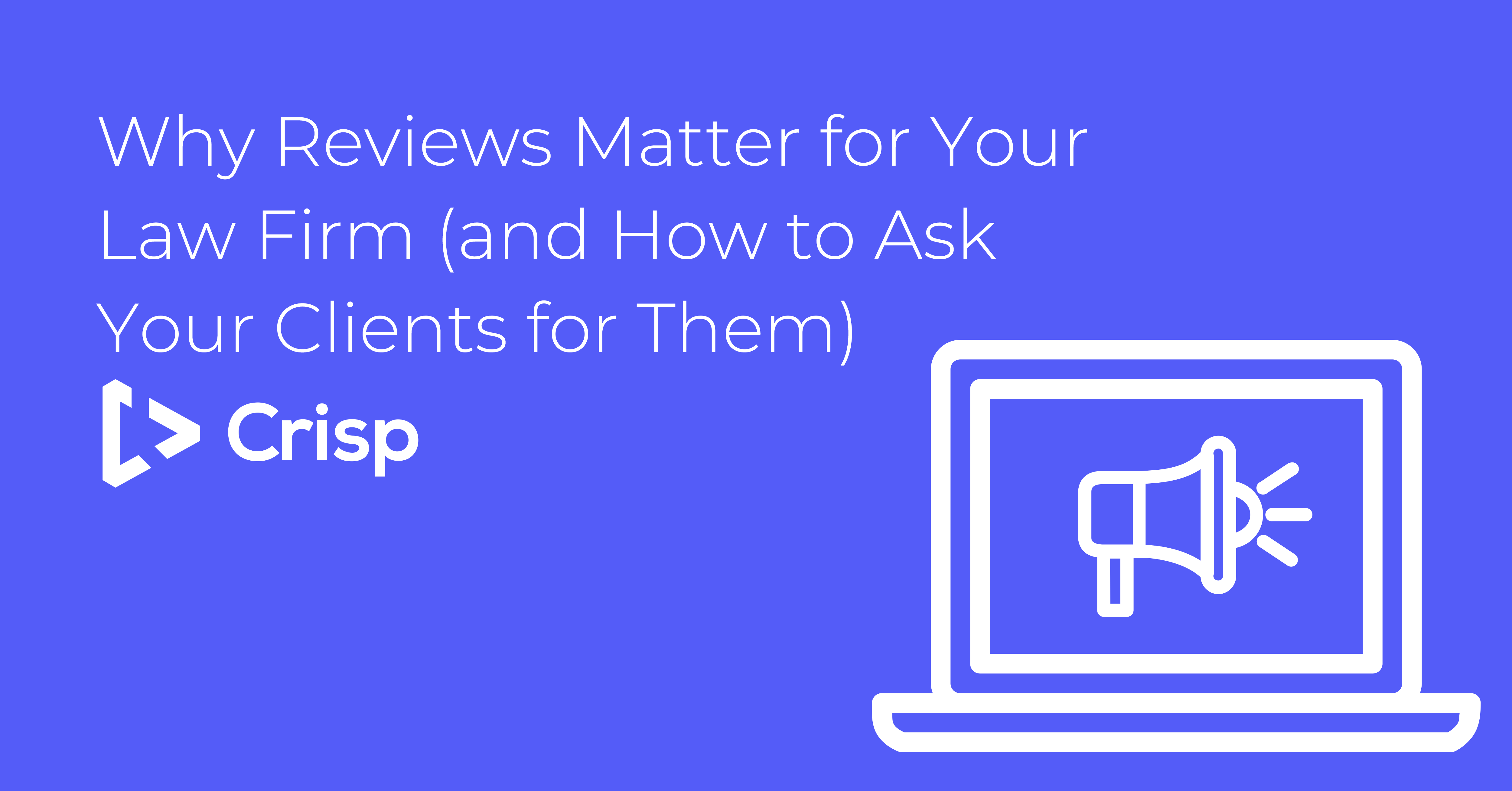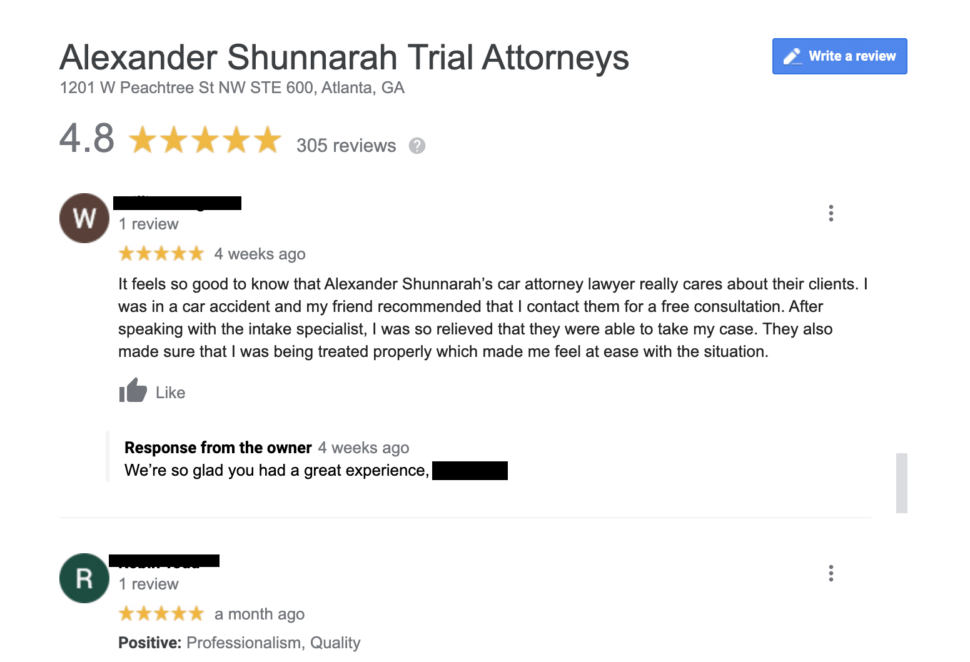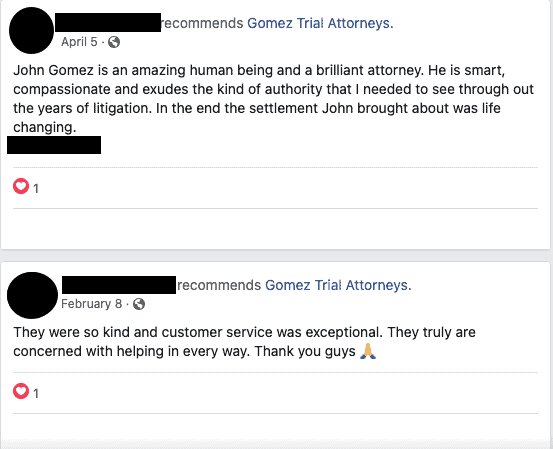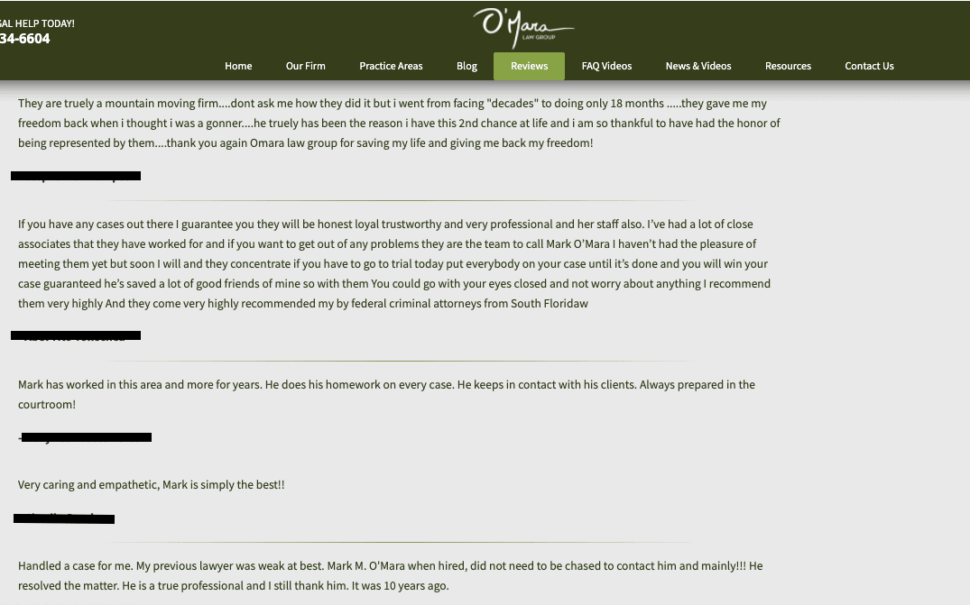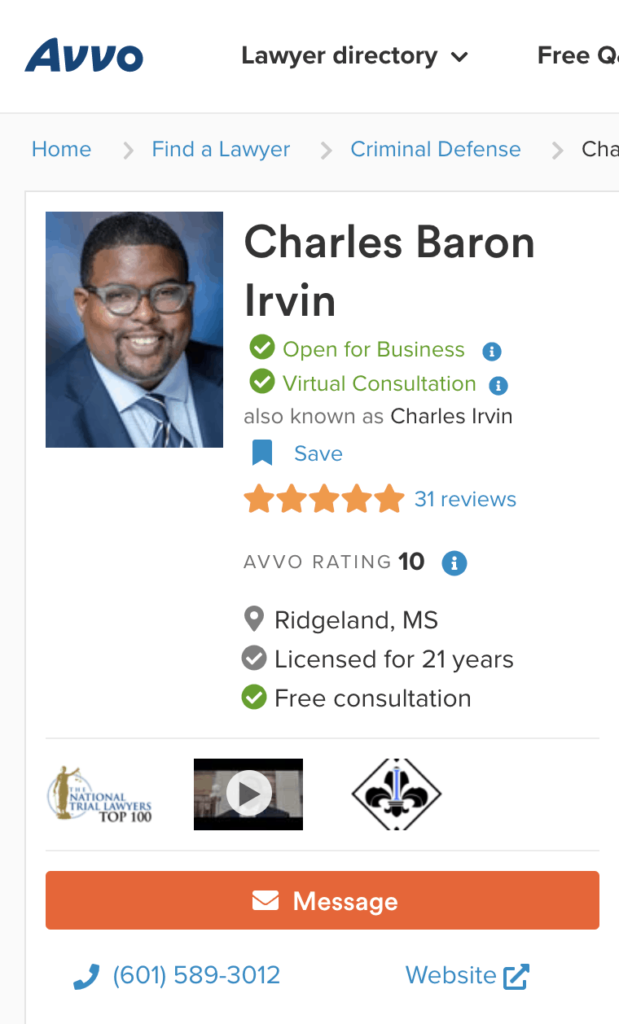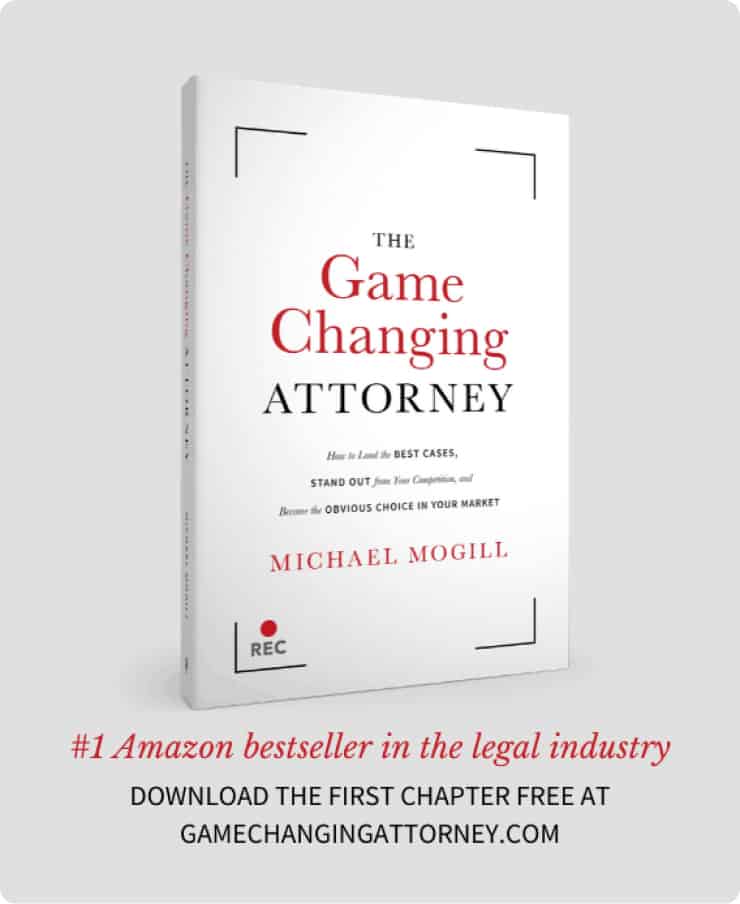What’s the very first thing you do when you learn about a new brand? Whether you’re picking out your next book to read or deciding on a lunch spot, you probably don’t want to go in cold.
We’d bet you look them up online.
You may check Google or Twitter or Yelp, but they’re all connecting with the masses to get a better idea of what to expect before you make a potentially pricey purchase.
You’re not alone.
According to a 2020 Qualtrics report, “93% of consumers say that online reviews influenced their purchase decisions.” Considering how much prospective revenue can be generated from these reviews, it only makes sense that companies prioritize optimizing their online reputation.
Why would your law firm be any different?
- What is a review?
- Where do law firm reviews go?
- Why are reviews/testimonials important?
- How to ask your clients for reviews
- Final thoughts
What is a review?
Let’s roll out the whiteboard and start from the broadest level.
Reviews are communications of the firsthand experiences that customers have had while using a particular product or service. They are generally rated on a number of scales: stars, numbers, or a binary scale like thumbs up or down; there’s almost always an accompanying section that includes an option for written reviews.
Where do law firm reviews go?
Like every other industry, there is no shortage of locations where your legal client reviews can live.
Every business can easily set up a Google My Business profile for free, which will be one of the first things that any prospect sees upon coming across your account. Not only can you monitor these reviews, but you can also engage with them and salvage negative ones.
Facebook is another valuable tool. It’s intuitive for reviewers and businesses alike and, like Google, can be monitored for negative reviews.
Your firm website is the perfect place to showcase your finest reviews. Because you run the site, you have full agency to curate your favorites and display them in a manner of your choosing.
Avvo is an attorney directory where prospective clients can search based on location, practice, area, years licensed, and review score. This last category is key and here’s why…
Imagine somebody in Dallas, TX is going through a divorce. You’re in luck because you’re one of the longest-practicing divorce attorneys in the Dallas-Fort Worth area. You must be one of the top options, right?
The only problem is that this pending divorcee is filtering the lawyers on Avvo by 4-star reviews or higher. You check and you have a 2-star rating.
How could this happen? You and your partner have always provided the best service to all of your clients. You run a diligent operation with an exceptional team all across the board.
But then you check the poor review and it’s from a disgruntled spouse who believes that she didn’t get the settlement that she was entitled to. “That’s ridiculous,” you think! It’s a minuscule sample of your overwhelmingly satisfied client pool! But because you didn’t nurture any online reviews from those happy ones, the negative one spoke disproportionately louder.
Why are reviews/testimonials important?
As you can see, reviews and testimonials are non-negotiable when it comes to your firm’s acquisition of new business. Here are some of the primary reasons for their importance:
Social proof
We’ve covered social proof in a prior blog post, but as a refresher: it’s when people make decisions based on the actions of others. Think of it as peer pressure, but usually a good kind! Rather than being persuaded to smoke cigarettes, you may be persuaded to buy a popular brand of coffee beans.
Social proof is so powerful because we are listening to real consumers, just like us. There’s an inherent trust in impartial sources of information. Why would they give a dishonest review? These folks allow us to make relatively informed decisions in otherwise ambiguous situations.
Facilitating the buyer’s journey
Crisp Founder and CEO Michael Mogill has discussed the new buyer’s journey extensively, but it boils down to five main steps:
Awareness
At first, your clients won’t have any idea who you are nor why they should choose you. Your goal is to answer both of those questions. At this point, their decision-making is driven largely by emotion and hardly at all by logic. Making an immediate and lasting impact is the best approach, but that’s hardly the terminal step in the process.
Interest
Now the prospective client knows who you are but does not yet recognize that you are the right fit for their needs. They’re still being driven largely by their emotions, but the logical part of their thought process is growing. Now is the time to tell your story and express your unique value proposition in order to stand out from your competitors.
Evaluation
At this point in the buyer’s journey, the prospect has formed their opinion about the potential vendors but is looking for logical support to back up their emotional response. Thus they are looking for evidence as to why they should trust their hunch. Now the ball is in your court to offer that evidence. Position yourself as a thought leader or credible subject matter expert…the solution to their problem.
This is where those online reviews are essential. If they’ve narrowed down their options to you and your direct competitor, they’ll turn to Google, Facebook, or Avvo to see what other customers have said. If your competitor has a thousand reviews and a 4-star rating and you have six and the same score, most people are going to go with the former. 70% of consumers trust reviews from strangers and 85% read at least ten reviews before they make a decision. By curating these valuable reviews, you’re evening the playing field.
Decision
The client has finally made their decision! They’re ready to hire you, but looming hesitations may linger. They’re ready to begin the professional relationship but will be subconsciously gathering evidence about whether or not you’re living up to the picture you have painted about your business via your marketing tactics. Now is the time to put your money where your mouth is and wow them with exceptional customer service all across the board — from intake to the legal practice itself.
Loyalty
This stage is where you have the opportunity to create a raving fan. Your clients will view their relationship with you in two dimensions: the value you offered and the experiences surrounding and supporting that value which may add or subtract from it.
They’re being driven largely by the emotional part of their brain at this point. People may forget what you did for them, but they’ll never forget how you made them feel. Remember: the worst experience you could offer your clients is the one they could get anywhere else.
It’s clear that garnering reviews about your firm is key to securing your place in the buyer’s journey. But first, you have to actually acquire them.
How to ask your clients for reviews
There are numerous ways to obtain reviews from your clients, ranging from passive to direct.
You can simply publicize your various social media channels and encourage clients to “like” and review your firm. This can be done with signage in your office, automatic emails after consultations, or simply asking them in person if they’d be willing to do so. If you provided the positive experience you know you’re capable of offering, your happy clients will be thrilled at the opportunity to rave about you.
Another approach is to create your own testimonials from real customers. This is different than the social media approach because it resides on your own website and you can select which ones you display. While a written quote certainly helps, social proof is far more effective when there are accompanying pictures or videos.
That’s why at Crisp we work with law firms to create client testimonial videos featuring real clients who share the powerful ways the firm has changed their lives for the better. It’s a simple and compelling way to illustrate the meaningful value you can provide to your clients’ lives.
Nobody enjoys fishing for compliments. You may be intimidated by the notion of asking somebody to sing your praises, so why not incentivize them and make it a win-win?
There are plenty of ways you can entice your clients to provide reviews or testimonials. Offer gift cards, discounts on future services, send a thank-you note…consider how valuable the review is and compensate accordingly.
Final thoughts
Client reviews are clearly necessary to grow your business. They’re how you can differentiate yourself from the competition by offering tangible proof that you have excited countless clients before them with your top-tier service.
They back up logical inquiry with emotional validation so when a prospect finds themself wrestling with who they want to select for legal representation, you’ll be the clear choice.
